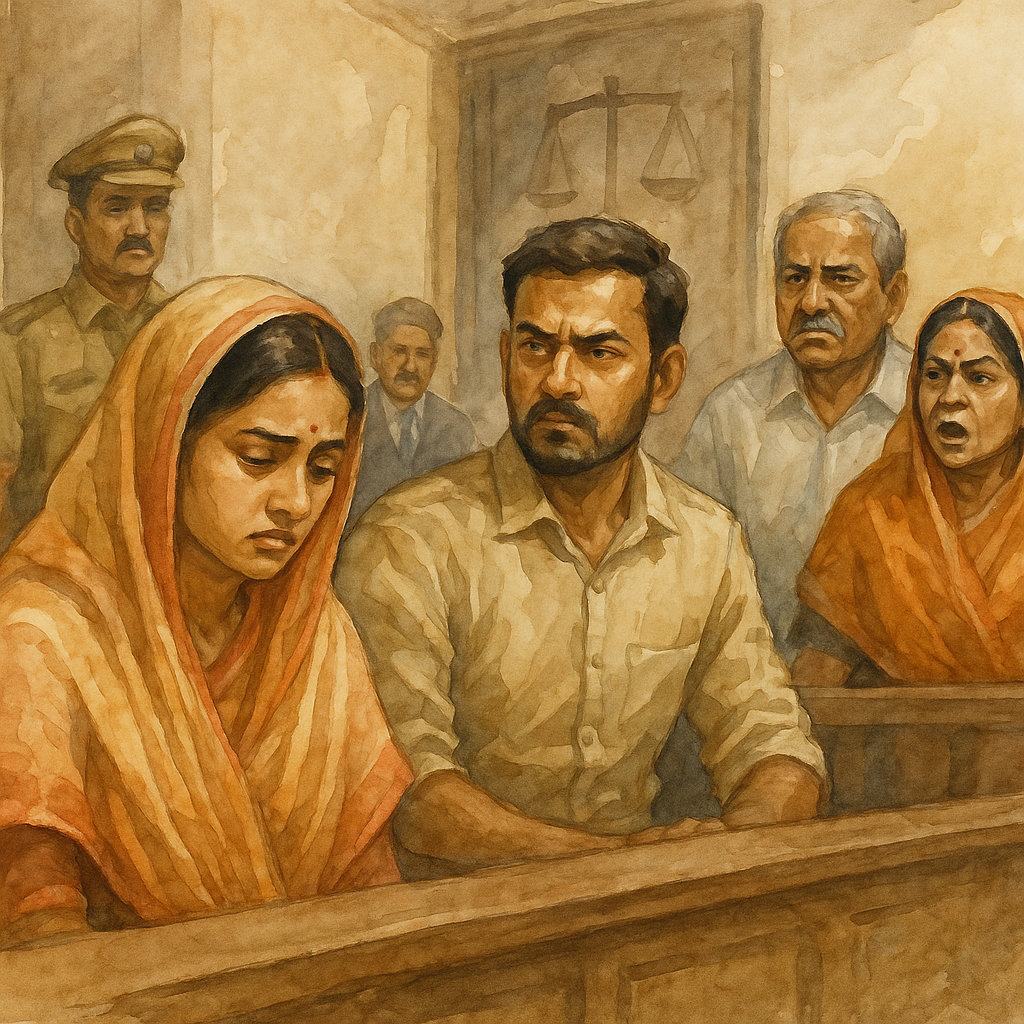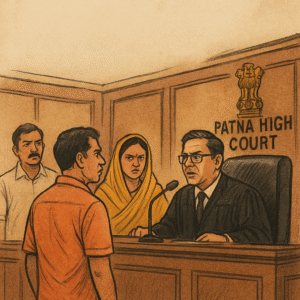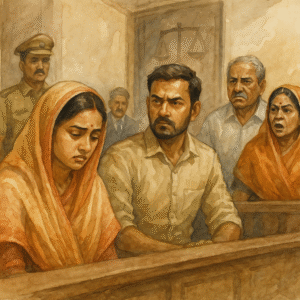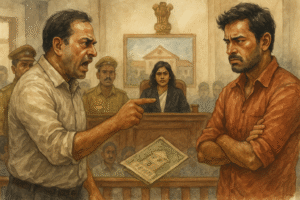Simplified Explanation of the Judgment
In this case, the Patna High Court addressed a dowry-related complaint filed by a woman against multiple members of her matrimonial family, including her husband, father-in-law, mother-in-law, brother-in-laws (dewar), and sister-in-law (nanad). The petitioners approached the High Court under Section 482 of the Criminal Procedure Code (Cr.P.C.) to challenge the lower court’s decision to take cognizance of the offences against them.
The original complaint, registered as Mahila P.S. Case No. 1 of 2014, alleged that the complainant was subjected to cruelty and harassment for dowry. She claimed that during her marriage, her parents gave Rs. 2 lakhs worth of articles, including jewelry, clothes, and a TV, but later, the matrimonial family started demanding an additional Rs. 50,000 as dowry. Following this, a local Panchayati (village mediation) was organized, but after that meeting, her in-laws reportedly stopped providing her meals. The complaint further stated that her jewelry was taken away, and she was physically assaulted, prompting her to call her father.
The petitioners in this case were the dewar (younger brothers of husband), the nanad (sister of husband), and the father-in-law. Their counsel argued that apart from general and vague allegations, there were no specific accusations against them. They also emphasized that the husband had moved to Delhi, and these petitioners were not living in the same household, further weakening the basis for their implication in the case.
Upon examining the case diary, the court observed that the complainant had repeated her initial version without providing clear or direct allegations against the petitioners. Statements from other witnesses, including her parents and a neighbor, revealed that while there was a history of disputes, the husband and wife had lived together in Delhi and that the husband was now residing separately.
The High Court referred to several Supreme Court precedents, including Preeti Gupta v. State of Jharkhand, K. Subba Rao v. State of Telangana, and Neelu Chopra v. Bharti, which caution against indiscriminate inclusion of extended family members in dowry-related complaints without specific and substantiated allegations.
Finding merit in the petitioners’ argument, the Court concluded that proceeding against them based only on omnibus and generalized allegations would amount to a miscarriage of justice. It, therefore, quashed the cognizance taken by the Chief Judicial Magistrate, Saharsa against the petitioners (Nos. 1, 2, and 4), effectively ending the criminal proceedings against the dewar and nanad.
Significance or Implication of the Judgment
This judgment serves as an important precedent against the misuse of dowry laws, especially Section 498A of the Indian Penal Code, which is often used to implicate the entire family of the husband. While the law is crucial to protect women from genuine harassment and cruelty, this decision underscores the necessity of making specific and concrete allegations to justify criminal prosecution.
The ruling protects individuals from unnecessary legal hardship and emphasizes judicial scrutiny in cases where familial relationships are strained. It is a reminder to both investigating agencies and trial courts to avoid a mechanical approach in dowry-related cases.
Legal Issue(s) Decided and the Court’s Decision
- Whether omnibus and general allegations justify criminal proceedings against in-laws?
- Court’s Decision: No. Cognizance quashed against petitioner nos. 1, 2, and 4 due to lack of specific allegations.
- Can extended family members be prosecuted in a dowry case without clear roles or actions attributed to them?
- Court’s Decision: No. The court must assess the presence of concrete accusations before allowing prosecution.
- Whether the power under Section 482 Cr.P.C. can be invoked to prevent abuse of legal process?
- Court’s Decision: Yes. The High Court used its inherent powers to prevent harassment due to baseless accusations.
Judgments Relied Upon or Cited by Court
- Preeti Gupta & Anr. v. State of Jharkhand, AIR 2010 SC 3363
- K. Subba Rao & Ors. v. State of Telangana, AIR 2018 SC 4009
- Neelu Chopra & Anr. v. Bharti, (2009) 10 SCC 184
Case Title
Munna Kumar @ Kumodh Kumar and Ors. v. State of Bihar and Anr.
Case Number
Criminal Miscellaneous No. 7266 of 2015
Citation(s)
2020 (1) PLJR 468
Coram and Names of Judges
Hon’ble Mr. Justice Shivaji Pandey
Names of Advocates and who they appeared for
- Mr. Alok Kumar, Adv. – for the petitioners
- Mr. Neeraj Kumar, Adv. – for the petitioners
- Mr. Nawal Kishore Prasad, APP – for the State
Link to Judgment
https://patnahighcourt.gov.in/vieworder/NiM3MjY2IzIwMTUjNCNO-wx49E–am1–V9UFE=
If you found this explanation helpful and wish to stay informed about how legal developments may affect your rights in Bihar, you may consider following Samvida Law Associates for more updates.








